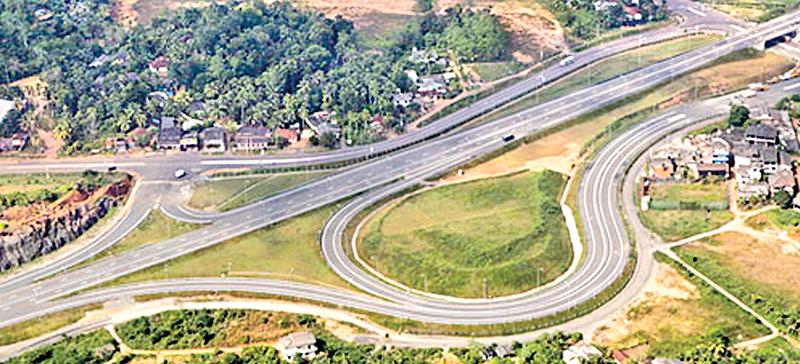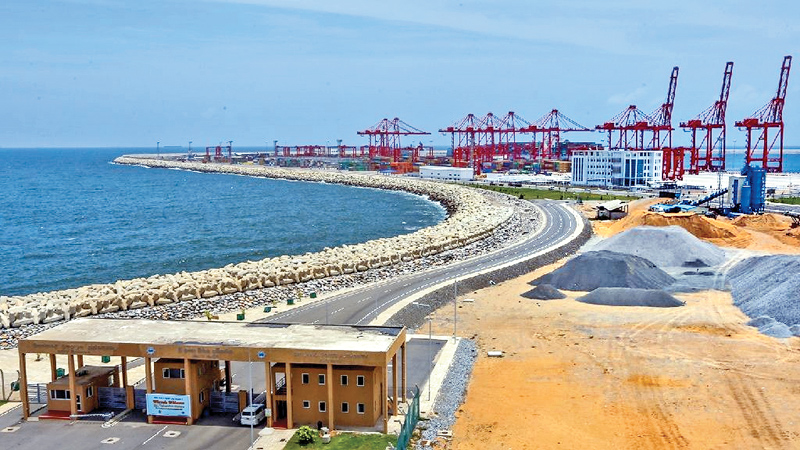
There is growing concern within senior members of the business community about the Government´s new policy of awarding tenders through the “Swiss Challenge” method following a number of recent international tenders that appear to be tailor made for the final awardee.
These concerns were heightened following a newspaper report on Sunday, 19 March, (not of the Sunday Observer) that quoted Finance Ministry sources that the government will entertain mega development projects with “high foreign investments beneficial to the country” under a new procurement system, that deviates from “government‘s policy of following the open bidding procedure to ensure transparency”.
The “Swiss Challenge” system, originally adopted by countries like the Philippines, some African countries and India, attempts to formalize unsolicited proposals from infrastructure investors by allowing others to bid on the proposal and then ask the original proposer to match the best bid. If the original proposer does not match the best bid, it is awarded to the best bid.
The Ministry of Agriculture recently claimed that the recent waste to energy projects approved by the Cabinet to resolve the Western Province´s garbage issues were the first successful Swiss Challenge bids that the government has awarded. While there is no official confirmation, another recent tender by the Ministry of Power to obtain 60 mega watts of emergency power to be installed in five different locations (tender number DGM(EPT)/EmPwr/2016/02), also appear to be a “ Swiss Challenge”, given that only one supplier was able to match the stringent specifications.
A recent representation made by a leading Indian logistics company, Ocean Sparkle Limited (OSL) directly to the Prime Minister and through the Indian government and its High Commission in Colombo to the Chairman of the Officials Committee on Economic Management (OCEM), R. Paskaralingam on Monday, 13 March, allege that Sri Lanka Ports Authority has delayed to honour an award letter to OSL securing a tender, calling for a lease of two tugboats for the Colombo Port, despite the Cabinet Appointed Procurement Committee (CAPC) recommending the award to OSL and another company, as far back as November, 2016.
Unsuccessful bidder
There now appears to be a move to re-tender this as a Swiss Challenge, basing on an unsolicited proposal submitted by an unsuccessful bidder at the original tender, changing the tender conditions to match the specifications offered by this bidder. In the light of these controversial reports, the government needs to clarify and make clear what this new procurement system entails. Last year, an expert panel appointed by the Indian government, chaired by a former Finance Secretary to the Indian Ministry of Finance, discouraged the Indian government from following the Swiss Challenge System, specifically mentioning Infra structure projects. (https://goo.gl/zx7tnd)
The Vijya Kelkar report “Revisiting and Revitalising the PPP model of infrastructure development” said Swiss Challenge proposals must be “actively discouraged” as “they bring information asymmetries in the procurement process and result in lack of transparency and in the fair and equal treatment of potential bidders in the procurement process”.
While accepting that the Swiss Challenge method would encourage private players to bring innovation, technology and uniqueness in the development of projects, bringing in cost efficiencies, cut red tape and shorten project timelines, the report argued that “Without a strong legal and regulatory framework, the method fosters crony capitalism and is also conducive to discretionary favours being shown to a private party by the government of the day”. (https://goo.gl/sl2g1p).
Madhawa Waidyaratne, Additional Secretary to the Ministry of Mega Polis and Western Development, at a presentation made at an investment forum organized by the Urban Development Authority last year, said, the Cabinet Committee on Economic Management (CCEM) at its meeting held on 4 May 2016 decided to introduce “Swiss Challenge Procedure” to be followed by the Ministries, Departments and other government organizations when dealing with unsolicited proposals and that Guidelines for adopting “Swiss Challenge Procedure” has now been approved by the Cabinet of Ministers. According to his presentation, “these guidelines shall apply in selecting development proposals presented by the private investors which are of strategic nature from an economic development point of view and need to be expedited in the national interest” while “projects which are generally not of a strategic nature and can be managed through the conventional procurement procedure as well as procurement of a general nature goods and services should not be considered under these Guidelines”. (https://goo.gl/8KWQ7u)
In a detailed examination of the unsolicited proposals for development projects, a World Bank study team has this to say about Swiss Challenge and its companion, bonus points, methods.
Winning bidder
“Some practitioners question the effectiveness of a Swiss Challenge and a bonus system. Survey respondents in some countries, such as Tanzania, claim that these and similar mechanisms ultimately are artificial and distort competition. Specifically, with regard to the bonus system, governments in some countries, such as Chile, are finding that the difference between the winning bidder and the runners up is almost always bigger than the bonus points, leading to the conclusion that a bonus system does not influence competition. Although in Chile, the original proponents have won less than half of those bids, which were competitively procured where more than one bidder has participated. Another issue is whether the awarding of bonus points to the USP proponent discourages other bidders from seriously bidding, or from bidding at all.
In addition, a major problem with the structuring of the procurement process is that other competitors are given only a fraction of the time available to the USP proponent for the preparation of a proposal. This results in a very slim chance of serious high-quality proposals competing on an equal footing with the original USP.” (Unsolicited Proposals – An Exception to Public Initiation of Infrastructure PPPs: An Analysis of Global Trends and Lessons Learned, Public-Private Infrastructure Advisory Facility (PPIAF), August 2014. – available at https://goo.gl/kazisj)
The study points out that in tender procedures where price is the single award criterion, the Swiss challenge approach is very simple and straightforward while if proposals are assessed by quality and price, the level of complexity increases. “The USP proponent can match the best offer of the other bidders by offering a lower price or a higher service quality (or both). In case the USP proponent decides to match the winning bidder by raising the quality of his or her proposal, the procuring authority must decide whether the quality difference between the new and the original proposals is sufficient to match the proposal of the winning bidder” the study claims, pointing out that at this point, a Swiss Challenge mechanism is often difficult to conduct as “due to their complexity and the effort required on the part of other bidders, challenges to original proponents were rarely raised.”
Unless the government comes out with clear guidelines including complete transparency in the new system, i.e.:
Any tender initiated through a Swiss Challenge must include the complete proposal of the original proposer;
Must identify the original proposer;
Provide all relevant information technically necessary for others to meet the requirements of the project;
And allow a reasonable time frame for others to respond;
that system is bound to fail.
As highlighted in the Kelkar report, the Sri Lankan government will also foster crony capitalism and allow discretionary favours being shown to private parties, the bane of the previous regime, if correct frameworks are not in place and allow individual ministries to formulate their own methodology for the so called “Swiss Challenge”.
Appropriate system
While India is still struggling with the concept – a recent series of High Court rulings in Hyderabad, Andra Pradesh over legal challenges mounted by various parties over the Andra Pradesh state government´s decision to award a Swiss Challenge based bid for the creation of the state´s proposed new capital for a Singaporean Consortium, provides a sample of this struggle – some of its states, including Rajastan, appear to have made the process as transparent as possible.
The state´s procurement website (http://sppp.rajasthan.gov.in/actrulesprocedures.php ) lists the rules and regulations clearly and provides one of the best interfaces to search and be informed of the existing and past bids and those involved in the bids, state-wide.
Sri Lanka´s ICTA should study the e-procurement systems in place in India and elsewhere and instal an appropriate system to cover the whole gamut of government procurements, making this as transparent as possible, before we adopt somewhat complicated processes such as the Swiss Challenge.

